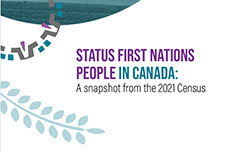Discover financial empowerment resources
Discover financial empowerment resources
This article shares stories from Amadeusz, an organization that works with people who are incarcerated to further their high school and post-secondary education. Learn about how experiences with the education system are deeply connected with basic needs for housing, income, and social...
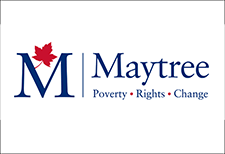
Ontario faces three crises in housing – attainability, affordability and homelessness. These crises were and are exacerbated by the ongoing COVID-19 pandemic. The economic chaos created as our American allies become difficult neighbours threatens to pile on top of the COVID-19 damage before our...
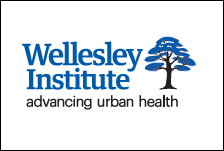
The policy brief, Provincial spending on housing and homelessness in Ontario, presents a stark reality: homelessness in Ontario is worsening, with chronic homelessness nearly doubling in just two years. The policy brief finds that: Homelessness is worsening: Over 81,000 Ontarians experienced...

Canada is facing housing affordability challenges. In 2021, one in five households (20.9%) lived in unaffordable housing, defined as spending 30% or more of household total income on shelter costs (Statistics Canada, 2022c). Some estimates have projected a need for an additional 3.5 million housing...

In 2019, Canada’s National Housing Strategy Act recognized housing as a human right. This report highlights the progress, partnerships, and collective actions that have driven the right to housing movement forward, with a particular focus on key milestones and achievements in...
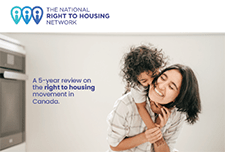
In 2024, close to half of First Nations people living off reserve (45%) and Métis (44%), and more than half of Inuit (54%) (all aged 15 years and older) reported that it was "difficult" or "very difficult" in the 12 months preceding the survey to meet their financial needs in terms of...

This toolkit, presented by Pathways to Prosperity, features a variety of practices and programs that can be used to address and improve each of the characteristics of a welcoming community, as identified in Toolkit I: Measuring Welcoming Communities. The goal is to mobilize and facilitate the...
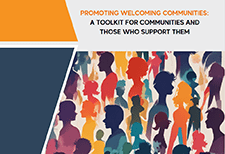
The Working Centre in Kitchener-Waterloo has been dedicated to aiding marginalized populations for over 40 years. In partnership with Prosper Canada, it embarked on an initiative to connect the populations they serve to government benefits and tax filing support. Recognizing the intricate...
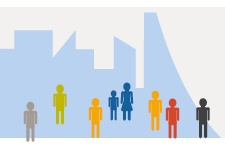
In partnership, Daily Bread Food Bank and North York Harvest Food Bank have released Who’s Hungry 2024 – an annual profile of poverty and food insecurity in the City of Toronto. In the last year, there were 3.49 million client visits to Toronto food banks – nearly 1 million more visits...
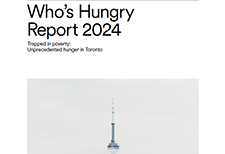
The executive summary on the progress of Opportunity for All- Canada's First Poverty Reduction Strategy identifies the availability and affordability of safe and suitable housing, the ever-increasing cost of feeding one's family, the long hours and low wages of work to barely keep your head above...

Homelessness among women and gender-diverse people in Canada has been declared by the Federal Housing Advocate a national human rights crisis. This new toolkit will support the evidence- and testimony gathering for the upcoming National Housing Council’s Review Panel on Canada’s Failure to...
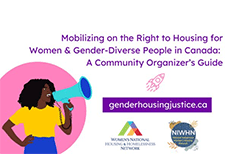
On August 5, 2024, FCAC relaunched its national, multi-media advertising campaign titled “Housing Costs on Your Mind?”. The campaign promotes FCAC’s tools and resources related to renting, buying a home and owning a home with a mortgage. The campaign runs until...

As the growth in the number of renter households in Canada outpaces the growth of homeownership,2 tenants, property owners and researchers are sounding the alarm that more can and must be done to recognize the right to adequate housing in Canada. Central to these calls is a better understanding...
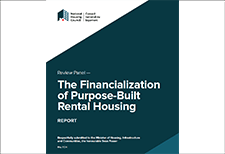
Greater attention has been given in recent years to the role of parental wealth in the home ownership aspirations of younger Canadians. Just as the intergenerational transmission of income inequality is of concern, an increasing reliance on the "Bank of Mom and Dad" raises questions about how...

While available research indicates that gender-diverse persons experience intersecting challenges to accessing adequate housing in Canada, there has been limited human rights analysis of this group’s experiences. Available research indicates that trans and gender-diverse persons experience...
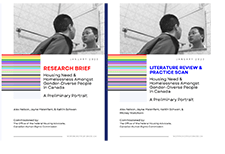
Many people living in First Nations communities do not have access to housing that is safe and in good condition—a fundamental human right. Improving housing for First Nations is vital for their physical, mental, and economic health and well-being. This is the fourth time since 2003 that we...
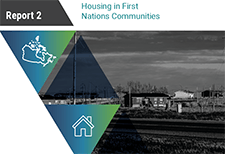
Between 2016 and 2021, B.C. lost nearly 100,000 rental units priced below $1,000 monthly. For every new affordable rental home built in B.C., four more are lost to investors, conversions, demolition and rent increases, and new affordable units do not compensate for the loss of existing ones. The...

Reaching Home: Canada's Homelessness Strategy is a community-based program aimed at preventing and reducing homelessness across Canada. This program provides funding to urban, Indigenous, rural and remote communities to help them address their local homelessness needs. Click "Access this resource"...

Canada's homeless encampments are a national human rights crisis. A growing number of people in Canada are having to live in tents or informal shelters to survive due to a lack of affordable housing, limited support services, and nowhere safe to go. Recognizing the severity of this crisis, the...
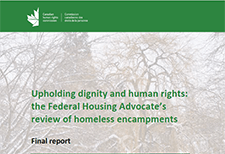
The National Housing Strategy Act (NHSA) of 2019 introduced landmark human rights mechanisms aimed at addressing systemic housing issues in Canada. These mechanisms enable rights holders who have borne the brunt of Canada’s housing crisis to have their voices heard, claim their rights, and offer...
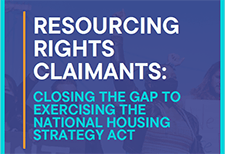
Economies around the world have had some rough years recently. From a global pandemic, a bout of inflation, a disruption in supply chains, coping with a European war and ongoing concern about global financial stability. The Canadian economy has weathered these storms as well, if not better than...

The Housing Supply Report provides regular insights on new housing supply in Canada’s major cities and urban areas. These insights can help us understand the supply responsiveness that we know contributes to price escalation and housing affordability challenges. This report examines new housing...
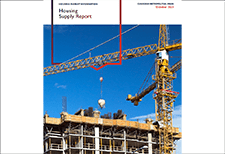
In Canada, laws and regulations protect financial consumers, ensuring they are treated fairly and have access to essential banking services. These rules prioritize helping people achieve better financial outcomes, especially concerning homeownership and mortgage difficulties. The Canada Mortgage...

This is the 2023 report on the progress of Opportunity for All – Canada’s First Poverty Reduction Strategy (PRS). While COVID-19 still threatens communities in Canada and around the world, the public health measures have largely been lifted. Temporary economic measures have also ended. At the...

This is a custom report produced by Statistics Canada in collaboration with the Assembly of First Nations. It includes key social and economic statistics regarding Status First Nations people living on and off reserve and includes comparisons with the non-Indigenous...
